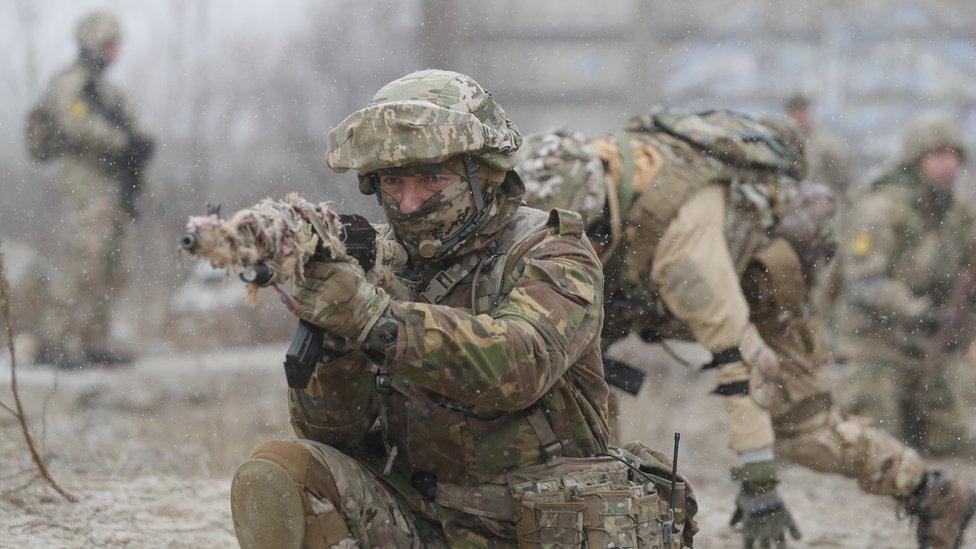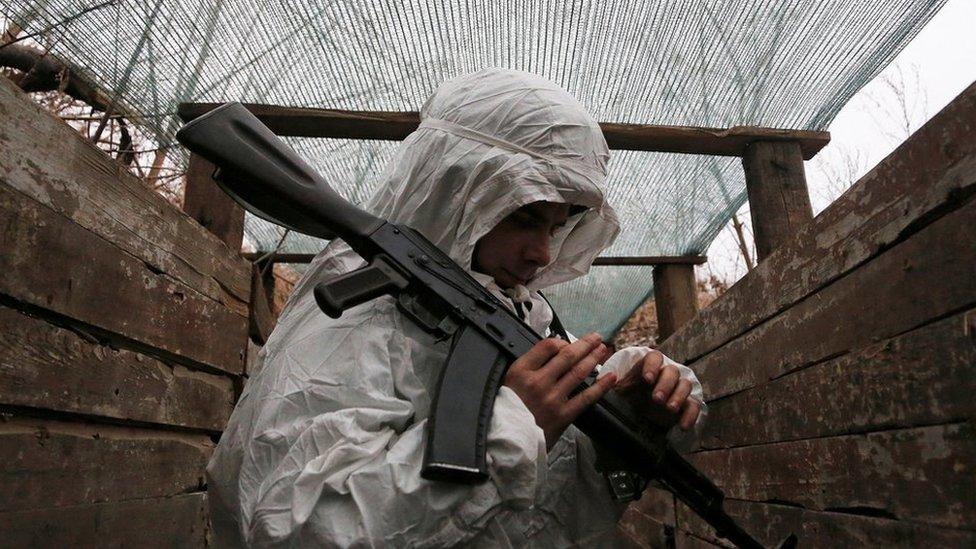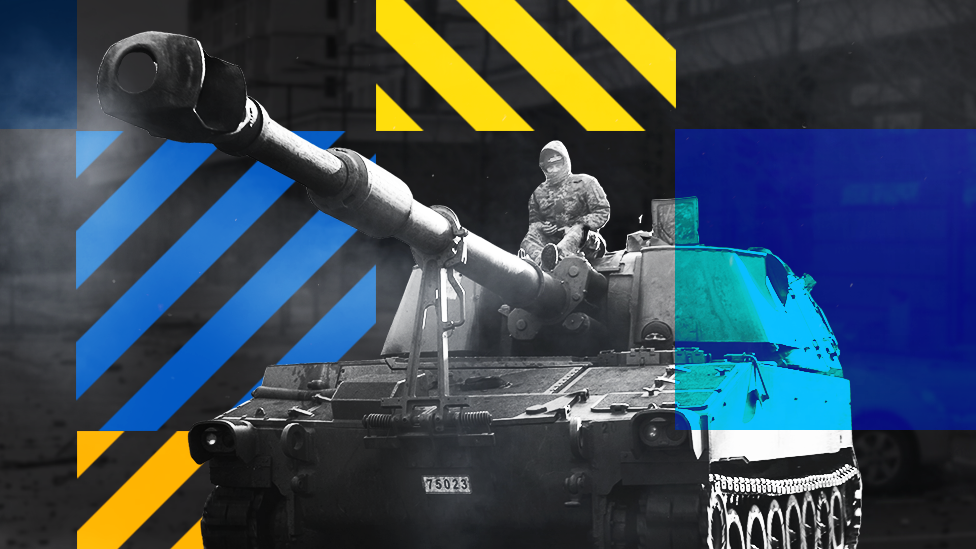Russia-Ukraine crisis: UK sending weapons to defend Ukraine, says defence secretary
- Published

Ukrainian army reservists took part in exercises in December as tensions with Russia mounted
Britain is supplying Ukraine with short-range anti-tank missiles for self-defence after Russia amassed about 100,000 troops on its border, the defence secretary said.
Ben Wallace told MPs a small team of British troops would also be sent to Ukraine to provide training.
He said there was "legitimate and real cause for concern" the Russian troops could be used for an invasion.
Russia denies any invasion plans and accuses the West of aggression.
Dozens of British troops have been in Ukraine since 2015 to help train their armed forces, and the UK has also made a commitment to help rebuild Ukraine's navy following Russia's invasion of Crimea in 2014.
But Mr Wallace said the UK would be providing extra help with security in the light of Russia's "increasingly threatening behaviour".
The first batch of light anti-armour weapons was sent on Monday, although the defence secretary did not specify the type.
"Ukraine has every right to defend its borders and this new package of aid further enhances its ability to do so," he told MPs.
"Let me be clear: this support is for short-range and clearly defensive weapon capabilities; they are not strategic weapons and pose no threat to Russia; they are to use in self-defence."
Russian troop build-up: View from Ukraine front line
He said there is "a package of international sanctions ready to go" if Russia should take any "destabilising action" in Ukraine.
Any invasion would be viewed as an "occupation" which "could lead to a huge loss of life on all sides", the defence secretary said.
He said: "We wish to be friends with the Russian people as we have been for hundreds of years. And there is a world in which we can establish a mutually beneficial relationship with Russia.
"I still remain hopeful that diplomacy will prevail. It is President Putin's choice whether to choose diplomacy and dialogue, or conflict and the consequences."
The Ukrainian ambassador to the UK welcomed Britain's decision to send weapons and extra troops, but told the BBC the biggest problem was that as they were not a member of Nato.
"We wanted to be in Nato... we are facing the biggest army in Europe by ourselves," said Vadym Prystaiko.
Ukraine ambassador Vadym Prystaiko says they are "facing the biggest army in Europe by ourselves"
Conflict between Russian-backed separatists in eastern Ukraine and the Ukrainian military has continued since 2014, although a shaky ceasefire is in place.
Western and Ukrainian intelligence services have suggested an invasion or incursion could happen some time in early 2022, after Russian forces amassed on the border.
Meanwhile, Russia has accused Nato countries of "pumping" Ukraine with weapons and said the US is stoking tensions in the region.
Its main demand is to stop any expansion of Nato to the east, with Deputy Foreign Minister Sergei Ryabkov saying after recent talks that it is "absolutely mandatory to ensure that Ukraine never, ever becomes a member of Nato".

A DIAGNOSIS THAT CHANGES EVERYTHING: How do we cope when our bodies and minds no longer behave how we want them to?
'STRENGTH THAT LIES WITHIN': Charlene's letter of inspiration for her daughter

Related topics
- Published17 January 2022

- Published24 February 2023
